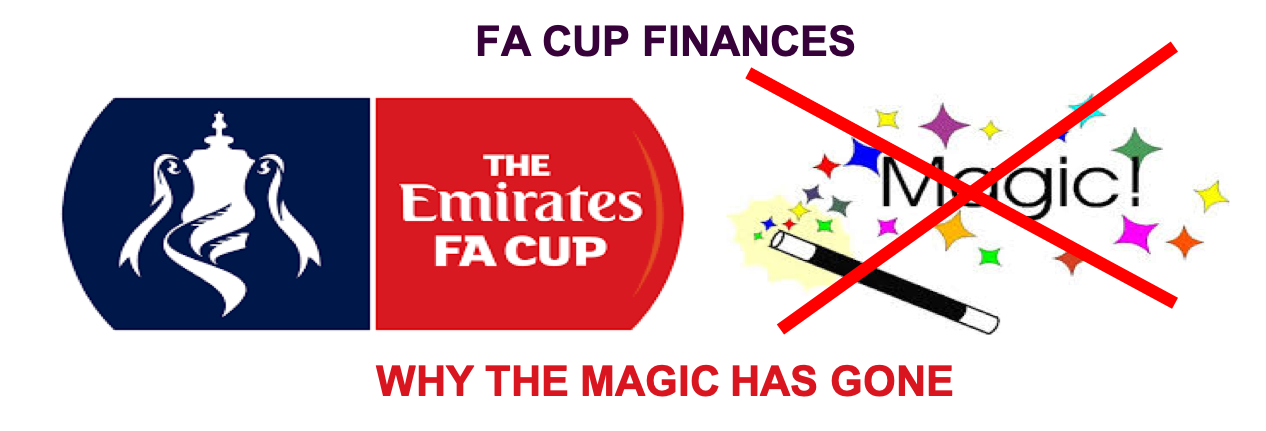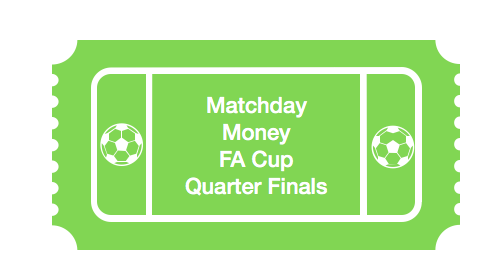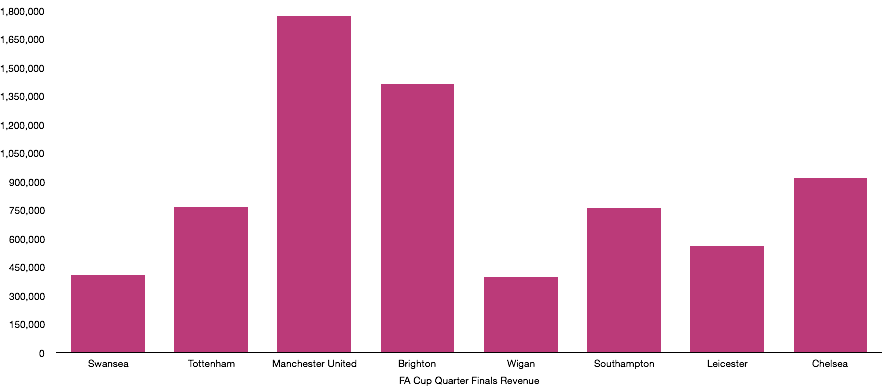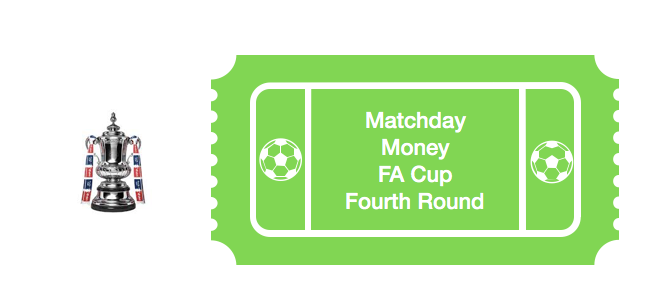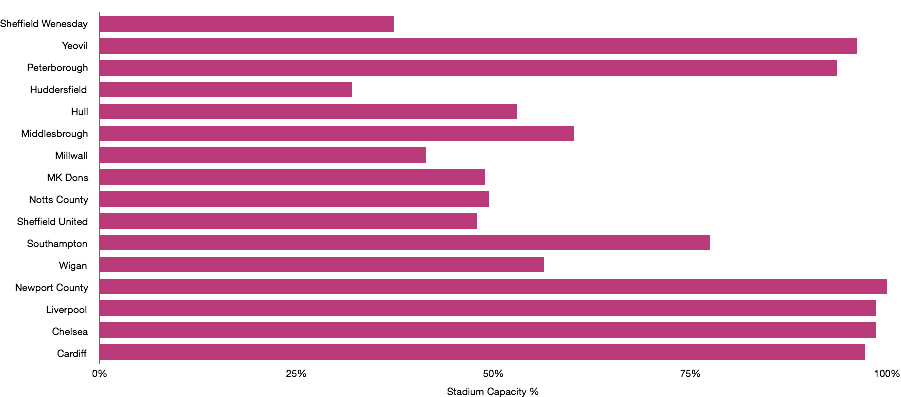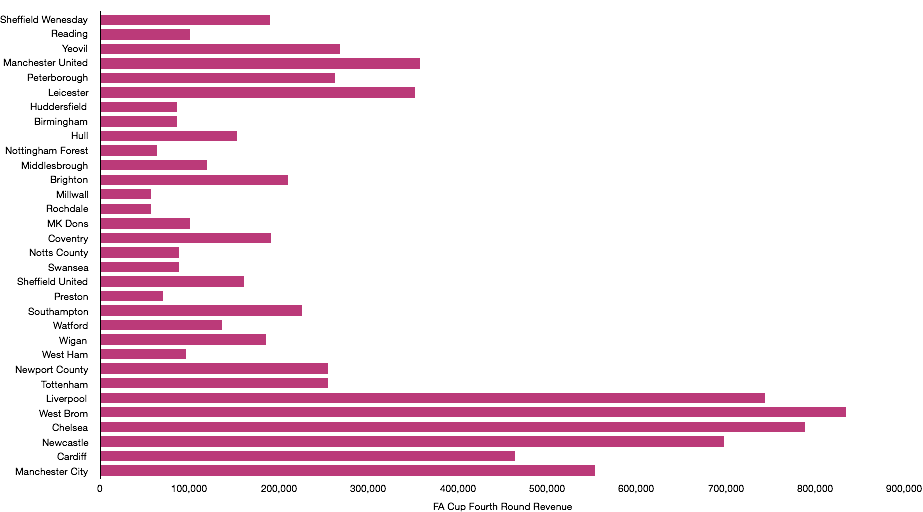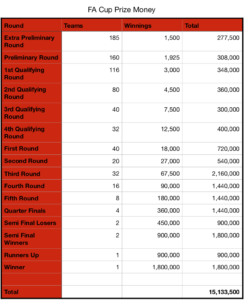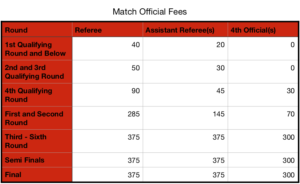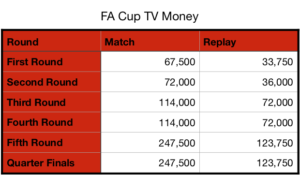The FA Cup Fourth Round is officially over and only 7 Premier League teams are in the draw for the next round. Neutrals have triumphed this as a sign that the ‘magic of the cup’ is still alive with a raft of giant killings occurring, however the reality is unfortunately a bit different.
The motivation of teams in the FA Cup is at an all-time low for Premier League clubs with weakened teams and poor performance across all but a few due to the slipping importance of this once great cup financially.
At the end of the season when all is said and done, the trophy itself is of great pride to the winner however, there can only be one such winner with everyone else believing their efforts were a waste of time due to the lack of money (and trophy) to show for it.
This article analyses why Premier League clubs are disregarding the FA Cup by comparing the finances on offer to those in the other, higher-priority competitions.
FA Cup – Booby Prize
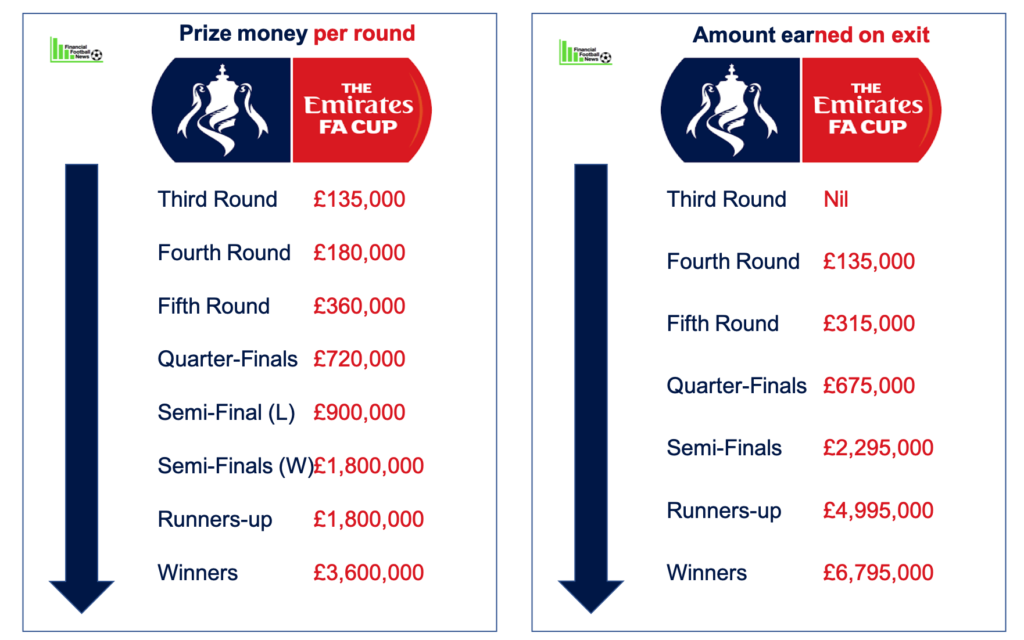
The FA Cup sees most Premier League clubs enter at the Third Round stage to great excitement of those in the lower leagues looking for a big payday and 90 minutes of fame.
For Premier League clubs and their owners, it is looked at as another fixture in a congested festive period. The winnings for such a fixture? A mere £180k which goes nowhere to funding anything in this day and age. These winnings only start to accumulate to any degree at the Quarter-Finals stage where a win earns you £720k. Cumulatively, the only rounds that earn you above £1m is the semi-finals and final, with the winner earning a decent sized £6.8m and the prestigious trophy.
However, getting to the final is no easy feat for any club with a fixture congestion to deal with, other good teams and injuries that can ruin any cup campaign. This means the risk to reward is fairly poor compared to what’s offered elsewhere…
Premier League – Lion Size Loots
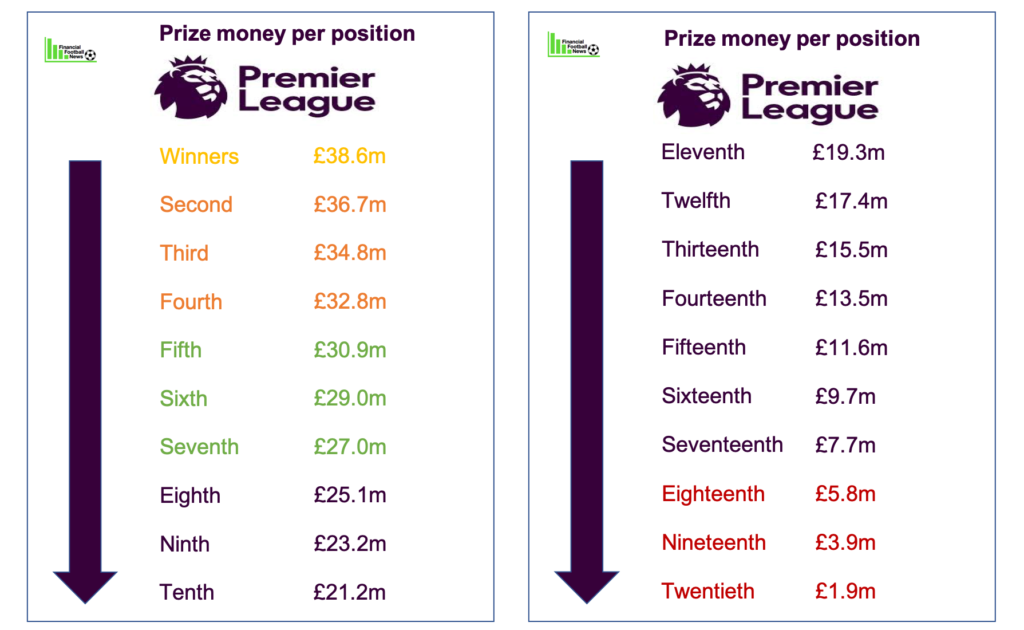
As shown above, Premier League clubs earn roughly an incremental £1.9m per league position in Premier League prize money (merit payments). This pay-out is larger than any FA Cup win other than a victory in the final (£3.6m). What makes this even more interesting is that the difference in points between 8th(£25.1m) and 15th(£13.5m) in 2018 was 9 points and a mouth-watering £13.5m, nearly double the total for an FA Cup victory despite taking only 3 games compared to 6 needed (at minimum) to win the FA Cup, not taking into account the added difficulty of navigating a cup run than picking up an extra 3 wins.
This showcase why resting players in cup games to be fresh for a Premier League game is becoming the wiser decision financially with the added rewards available.
Relegation – The Penny (lots of them) Drops
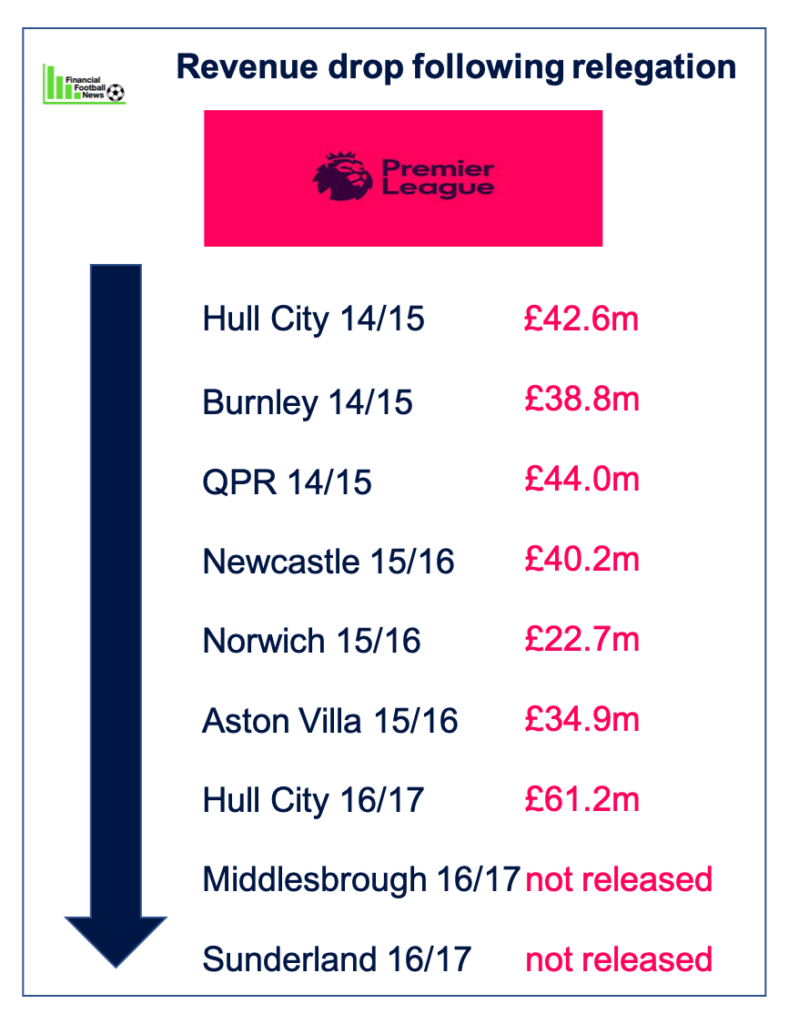
Not only is the Premier League important due to the differential of £1.9m per position, more importantly is survival which sees those near the bottom forego potential cup glory in the quest for preserving their Premier League status. Last year only 9 points separated 15thand 20th and 3 points between 17thand 18th.
Since 2015 (for those to release their financial data), the average revenue drop following relegation was £40.6m, ranging from as high as £61.2m to the lowest drop of£22.7m. The average is a crazy six times the winnings for the FA Cup, and such a revenue drop can be hard to come back from even if against all odds a relegated team wins the FA Cup (Hi Wigan).
Wigan fans may say they treasure that victory and they would be right in saying so, however the owners may have a slightly different view now it has all blown over.
Europa League – FA’s Big Brother
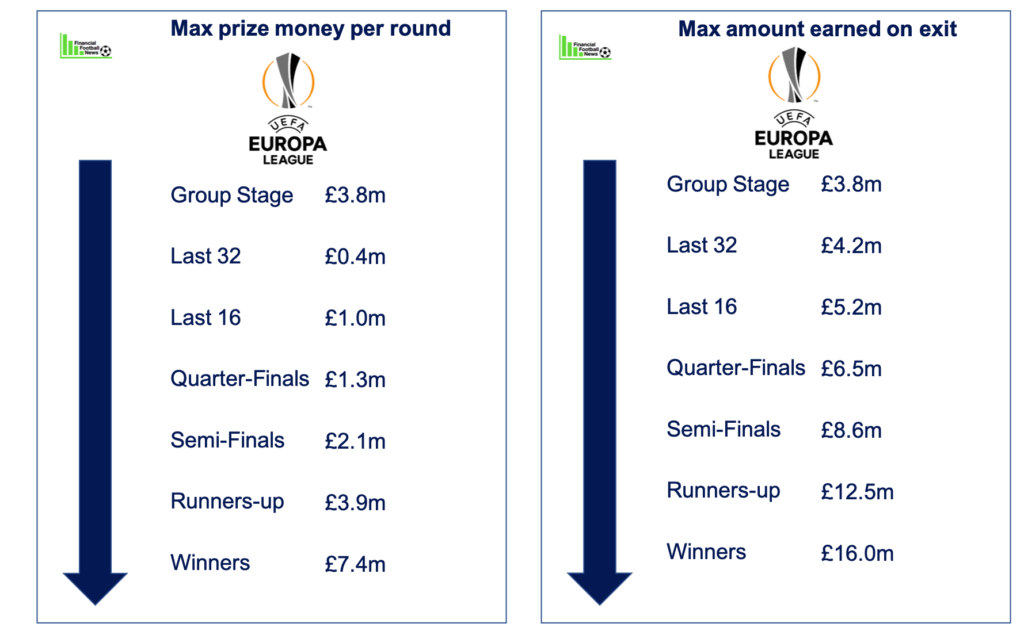
Another benefit to going full out on only the Premier League is potential European qualification, starting first with the Europa League.
Seventh place seems to always be up for grab in the race to be the ‘best of the rest’ and will secure a Europa League place (unless the League Cup and FA Cup winners aren’t already qualified).
It is worth noting that an FA Cup will gain a club entry to the Europa League as an added benefit however for this still seems like an unrewarding venture due to the difficulties in winning the cup and most likely having to beat one of the top 6 in the process.
The Europa League also offers better financial reward after coming through the early stage and is the closest in prize money to the FA Cup. A million pound plus prize money is available with every win from the Last 16 onwards and the massive prize of £7.4m to the winners and a Champions League place, make it a more enticing competition to the two of the Top 6 who missed out on the Champions League in the previous season.
Cumulatively, A Europa League victory will net you nearly double that of an FA Cup win, not taking into account the Champions League qualification earned in the process.
Champions League – The Money Shot
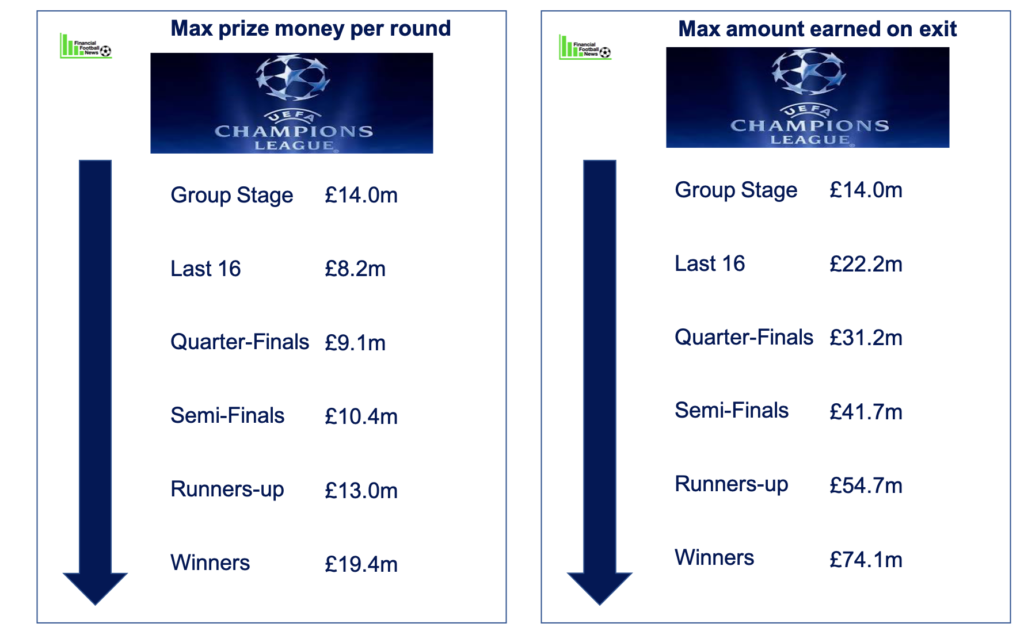
The pinnacle of European football and there is not much need to vindicate the reasons why the Premier League top dogs would prioritise this over the FA Cup. £14m is available in the group stage alone with a maximum pot of around £74m available to the winner plus more in commercial sponsors and additional prize money given to all clubs.
The finances on offer dwarf the FA Cup by more than ten-to-one and no fan would even want their club to jeopardise European glory for the FA Cup.
Conclusion
The FA Cup is a great cup of tremendous prestige however its importance is waning as the finances available elsewhere outshine the FA Cup in its current format, not only this but participation in it can jeopardise the finishes and finances earned elsewhere with the ever-increasing demands of players, opening clubs up to the kind of shocks we have seen this year.
Here is to a return of the magic and a hope that you enjoyed this article.

